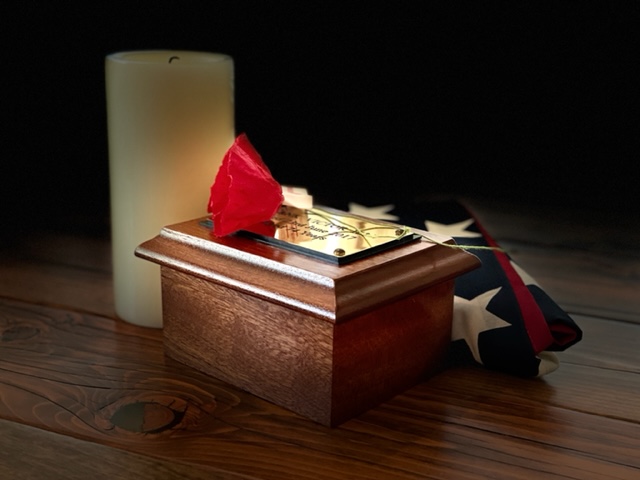Cremation Explained
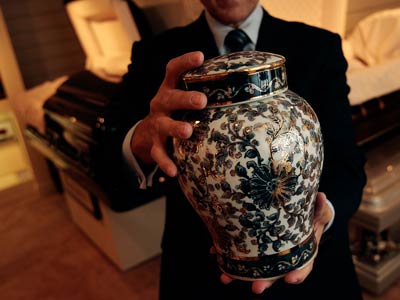
Are you considering cremation as a disposition option but curious about what the whole process entails? It can be difficult to make a decision about something that you may not clearly understand or have questions about. As more families consider cremation as a death-care alternative, we have put together this guide to explain everything you need to know about the cremation process.
The Funeral Home and/or crematory receiving the deceased
When the funeral home or crematory receives the deceased into their care, they will require the family to complete a Personal Details Form. This provides the funeral director with all the vital statistics he or she requires to begin the process of applying for the death certificate and enables the funeral home to provide shelter for the deceased with all the correct ID information.
How the deceased identity is verified throughout the cremation process
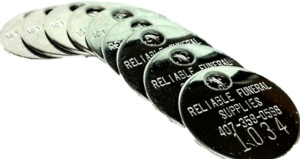
All funeral homes and crematories adhere to strict guidelines and rules. This especially pertains to ensuring the verification of ID throughout the process.
When a body is received at a funeral home or crematory, it is an imperative step that a family member and ID tag identify the body. A form of a metal tag is generated, which remains with the body throughout the process. After the cremation, the metal ID tag is put with the cremated remains.
Most funeral facilities use a project management system to track their cases and their current stage in the process. In some facilities, this may be as simple as a whiteboard and a case file system.
More modern facilities may use bespoke software systems to track and coordinate cases.
Preparing the body for cremation
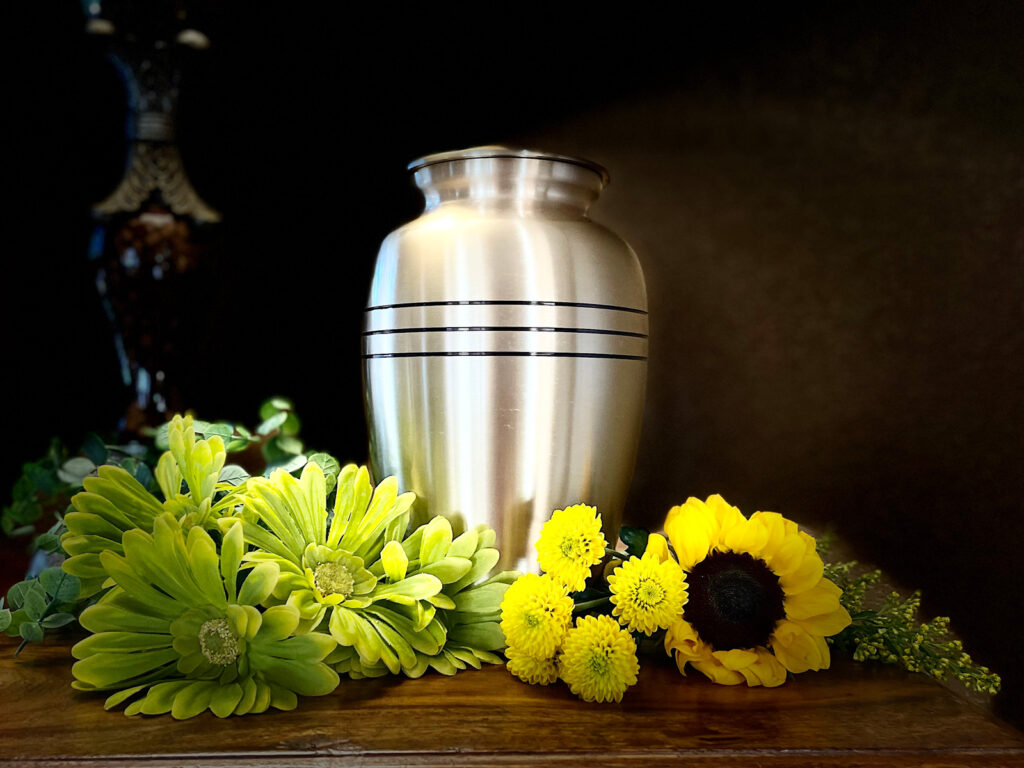
The funeral home will remove any items, such as jewelry, that the family does not wish to be cremated with the deceased. The deceased can be prepared in whatever clothes the family decides are befitting, similar to the preparation for a funeral.
If the family wishes to hold a viewing prior to the cremation, the deceased will be prepared for the family to visit and say their last goodbyes. As a basic cremation container is used, some funeral homes offer rental caskets or a viewing bed if a viewing is held.
If the deceased had a pacemaker or other type of medical device, this would need to be removed to prevent it from exploding during the cremation process.
What is a ‘cremation container’?
A casket is not required for cremation, although some funeral homes offer a wooden casket. Instead, a standard reinforced cardboard box with a plywood base is often used to hold the body. This is called a ‘cremation container’ and burns easily during cremation.
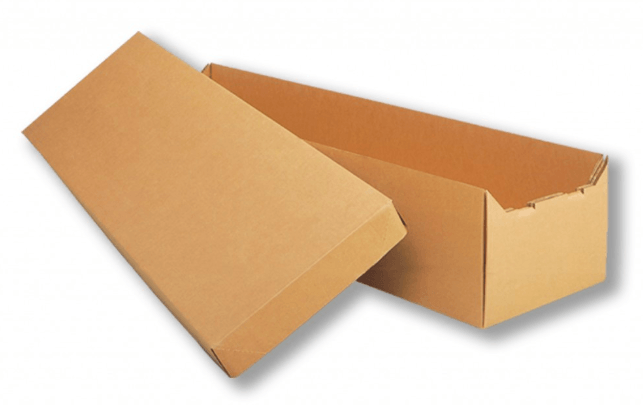
Preparation of permits, authorization, and paperwork – the legal aspects of cremation
As I mentioned, strict legislation governs the operation of human cremation, including submitting legal documents for processing. The immediate legal next of kin must sign a Cremation Authorization Form.
A cremation cannot proceed without this form. If there is more than one next-of-kin (for example, 2 or more siblings), then all siblings must sign the authorization form.

The funeral director will submit to the county office for the death certificate using the data provided by the family from the Personal Details Form. If required, he or she will also request the Permit to cremate the deceased. Some counties require a permit before cremation and charge for it, but this is not required in some counties.
The charge for the cremation permit varies significantly by county. Most charge between $10.00 and $60.00, but Wisconsin has some of the highest permit fees in the country, with Milwaukee County charging $357 for the coroner’s cremation release fee.
As cremation is a final disposition, there is also a legal mandatory wait period after death before a cremation can proceed. This period varies by state but ranges from 24 to 72 hours.
This means that even if the family has signed all the legal paperwork and a permit is issued, the cremation cannot be conducted until the mandatory period has expired. Generally, it will take 2-3 days for all the formal details to be completed before the cremation is scheduled.
During this time, the deceased is stored in a refrigerated storage unit, similar to how morgues store bodies, as embalming is not required for cremation.
How does the cremation chamber or cremation retort operate?
A cremation chamber is also known as a cremation retort. It is an industrial-type furnace that can hold one body and incinerate it at high temperatures. There are many different types of retorts, and today, there are modern and very efficient cremation machines that can be operated by computer and automated. Most are fueled by gas or propane.
The chamber has a door at one end, and the cremation container is loaded into the retort via the door. This is then sealed, and the cremation process begins. This can be done manually or automatically.
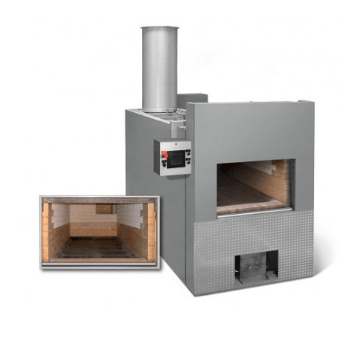
The chamber is constructed of fire-resistant bricks and special masonry that can withstand high temperatures and is generally housed in a stainless-steel casing. The temperature within the retort reaches between 1800 F and 2000 F.
The process takes around 2 hours to completely reduce the body to bones and ash. Some older cremation machines may take up to 3-1/2 hours to cremate. When a cremation retort has reached full heat, subsequent cremation can take less time.
Once the incineration process is complete, a tray containing the bone fragments and ashes is extracted for the next part. A cool-down period of approximately 30 – 60 minutes is required before the bones and ashes can be processed.
How are the cremation ashes processed?
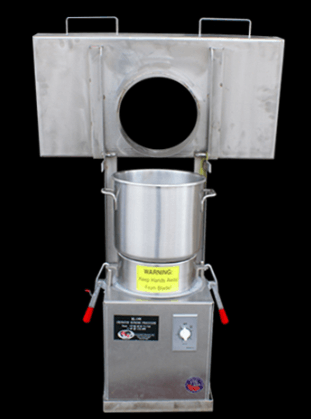
The remaining bone fragments are then put into a processing unit like a grinder. This unit pulverizes the bone fragments to a fine powder, known as the cremated remains or ashes placed in the cremation urn.
The ID tag will stay with the body throughout the cremation process, and it is then placed with the urn in readiness to return the ashes to the family.
Who can conduct a cremation?
Most funeral homes and crematories employ crematory operatives to run their cremation machines and process their cremation cases. Sometimes the funeral director may personally handle cases, but a trained crematory operative is versant in the specialized knowledge of safely operating a crematory and handling the deceased for cremation.
How long does it take from the funeral home receiving the deceased to the family receiving the cremated remains back?
The time frame can vary depending on several criteria. First, the cremation cannot proceed until all the legal requirements have been met. Second, depending on the crematory, there may be a schedule for cremation.
It is fair to say that it will generally take at least 7 days but quite possibly up to 10 days from the deceased being delivered into the care of the funeral home until the cremated remains are ready.
However, there are cases where an expedited cremation may be required, which can be facilitated if all the permits and authorizations are in order but may incur an additional charge. Likewise, I have known of cases that have taken 21-28 days (or longer) to process a cremation. This is typically where there is some discrepancy in the issuing of a permit and family consent in the authorization of cremation.
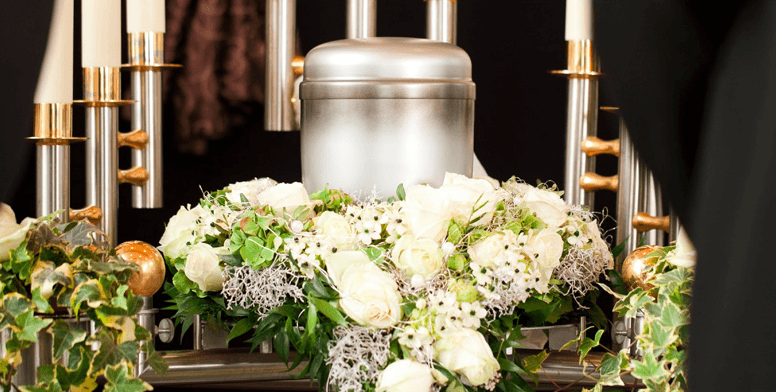
Other Frequently Asked Questions about Cremation
How long does it take for a body to be cremated?
It takes anywhere between 1 1/2 and 3/1/2 hours to cremate an adult body. The time of day the cremation is conducted (i.e., the retort needs to reach full heat to cremate faster) and the type of cremation machine can also affect the time.
Do you have clothes on when you are cremated?
Yes, the deceased is clothed when placed in the cremation container, and the clothes burn with the body.
Can other personal items be cremated with the deceased?
It is generally acceptable to place a small personal item in the cremation container with the deceased prior to cremation, so long as it is a combustible item, such as flowers or soft toys.
What happens to teeth during cremation?
Any teeth that do not burn during the process are ground down with bone fragments during the ashes’ processing. If the deceased had gold teeth, the family can decide whether to remove them before cremation.
Can an obese or overweight body be cremated?
Yes, many crematories offer bariatric cremations. Larger cremation retorts are required to hold and cremate a body over 600 pounds. Due to the increase in obesity, some crematories have replaced their standard retort doors with wider doors to be better able to fit a larger body through.
An obese body is likely to burn faster as it contains more fat, but it can be more dangerous to manage the retort and observe the incineration process. The handling of a body over 350 pounds requires additional equipment and a reinforced cremation container. For these reasons, many crematories will charge a barometric cremation fee. This will be anywhere between an additional $100 – $400.
How much do cremated remains weigh?
A standard adult cremation will produce an average of 3 to 9 pounds (1.4 to 4.1 kilograms) of cremated remains. The volume of cremation ashes usually depends on the bone structure and density of the person and not so much on their actual weight.Do I need a casket for cremation?No, a casket is not required for cremation. A simple combustible cardboard container is often used, especially when conducting a direct cremation. If you decide to hold a service before the cremation, many funeral homes now often have a rental casket, which saves you the cost of a casket.
Read more about rental caskets for a cremation service.
What happens to unclaimed cremated remains?
Not all families choose to collect cremated remains. Some families do not know what to do with the cremated remains. They may not want to inter the remains and do not want to keep them at home. Some have opted for cremation as a final disposition and do not want the remains.
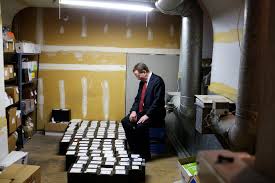
So, unclaimed remains are becoming a growing concern for funeral homes, especially as the direct cremation rate grows.
Some cremation providers offer incremental scattering services as a simple add-on to a cremation package so that they can scatter remains in a scattering garden with the families’ consent. This alleviates the funeral home of the issue of storing remains indefinitely.
Some cremation providers are now adding clauses to their contracts stipulating that if the cremated remains are not collected within 90 days, they have the right to dispose of them.
Historically, with a lower cremation rate, a funeral home would store any cremation urns not collected by the family. There was concern that a family member could turn up years down the line, wanting to retrieve the remains. But with the rise in cremation, this now has the potential to become a storage nightmare!
Cremated remains that remain unclaimed from indigent funerals are generally held for a period, and then the county authorities conduct a mass interment or scattering.
Cultural differences in the cremation process
Our cultural attitudes to cremation differ. The cremation rate is over 80% across Europe and in Japan. It is an accepted practice that cremation is a better solution for disposition. In some countries, this has been driven by a less faith-driven approach to death care and by available space for a body burial.
Cremation has been sacred in some cultures and religions for thousands of years. There is documented evidence of cremation practice among the early Phoenician and Persian cultures. But over time, this was replaced with mummification and burial.
In Hinduism, it is a tradition to cremate the deceased. Their concept of death being a transition to the next existence gives them a different perspective on the notion of the body. Other Indian religions, such as Sikhism and Jainism, also mandate cremation.
Some crematories that cater to faiths, like Hinduism, which has specific cremation rituals, will facilitate the ritual rites of cremation. For example, Hindus are required to begin the cremation and see the deceased enter the cremation chamber. So, a crematory may have a special viewing area with a control button, and a family member can observe the cremation container entering and starting the machine. Where possible, they will help the family observe the sacred rituals of the funeral rites.
What does a cremation cost?

The cost of cremation varies. This depends on the type of cremation service selected and also the cremation service provider you use. The most affordable cremation service is direct cremation. This is a cremation without any ceremony provided by the funeral service provider.
Direct cremation is growing in popularity as it is an efficient and cost-effective disposition alternative. Families who choose direct cremation can still conduct a memorial service when they have the cremated remains returned to them. However, this does not have to be done immediately, so it can allow familiesto plan their own memorial or ash-scattering service at a time that suits them.
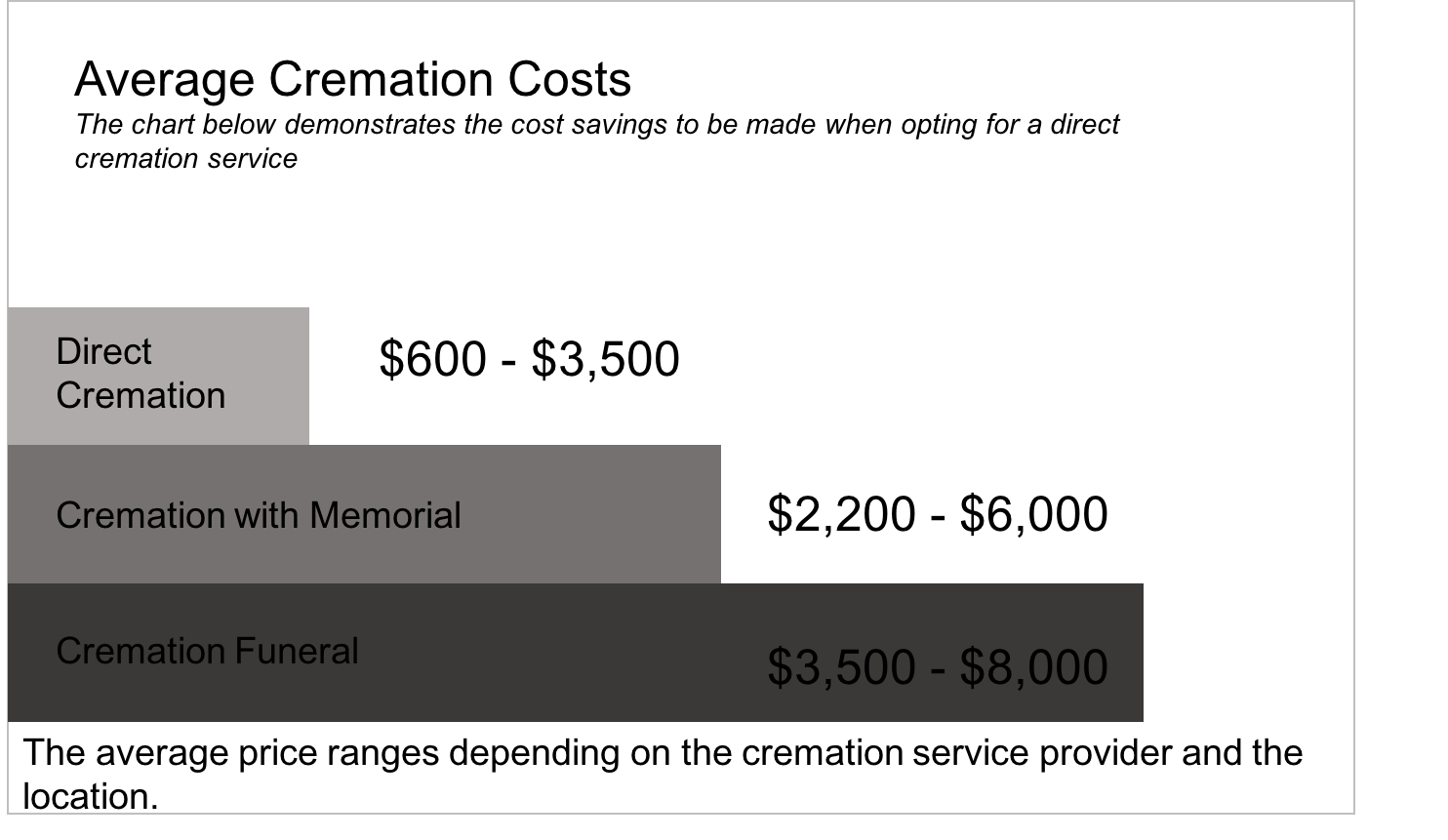
It is usually a good idea to compare cremation costs from several cremation service providers to determine the average cost you can expect to pay in your area. As we move into 2024, it is becoming apparent that cremation prices are increasing. This is due to increased
overhead costs for funeral homes and crematories and rising gas prices. Through the DFS Memorials Cremation Network, we noted that around 40% of our affordable direct cremation service providers have increased their basic cremation charge by $50 – $250 over the last 12 months.Funeral business acquisitions also impact the cremation market, as larger groups acquire more funeral homes in an area and can then begin to ‘set’ the cremation price for that market. Now may be a good time to set up a Simple Cremation Plan and lock in a price.
If you wish to make cremation arrangements online without visiting a funeral home, read our guide to Online Cremation Arrangements and Preplanning a Cremation Online. For further reading on Cremation – visit The Ultimate Guide to Cremation 2024 on US Funerals Online.
US Funerals Online Cremation Resources Section also has detailed guides to cremation costs by state – including California, Texas, New York, Florida, Georgia, North Carolina, and Illinois.


